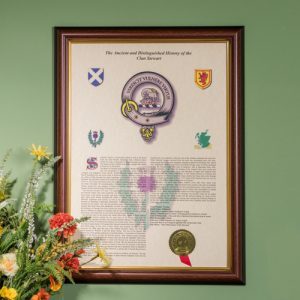Your basket is currently empty!

What is my surname meaning?
Posted on
Have you ever wondered if your surname actually has a meaning? All surnames originated somewhere and for a reason, and we can help you uncover the meaning of yours!
How old is my surname?
In truth, the use of surnames is a relatively modern construct, dating back around 700 years. They were not used in the Domesday Book of the 11th century and so it is unlikely that they were in use then.
Instead, those names featured in the Domesday Book showed where they came from or their expertise. In Glastonbury Church for example, there is mention of a ‘Robert the Bastard’ although we are not sure you’d get away with this as a surname in modern times!

In the 13th century however, King Edward commissioned a survey of English lands known as the ‘Hundred Rolls’ where many of the names featured included a second name or surname. It is documents such as these where our surname historians gather their information about the early origins of the name. Surnames likely came about because of the need to identify individuals for tax purposes – some things never change!
Does my surname fit into a category?
Most surnames most fall into one of four categories, so take a look below and see if your own surname fits into one of them. Of course, the meaning might be obvious straight away!
1. Surnames which identified a person’s job.
These are known as ‘Occupational’ surnames. It is clear from these types of surname what the actual meaning is. As you’ve probably noticed, such surnames are very popular and it is no wonder.
So, for example, popular names could be Butcher, Baker, Smith, Bowman and so on. Does your surname demonstrate the job of one of your forbears? If so, we’d love to hear and then we can check more about the surname’s history. Do you by any chance have a job related to your surname? It is surprising how many people do!

2. Surname meanings which relate to a place
In times gone by, the prefix ‘de’ was regularly used to denote where a person had come from. So for example ‘William de Worcester’ and in later years the ‘de’ has often fallen out of use. Such surnames show that the meaning is in where the person lived, and it was during the 14th century that this practice became more common.

3. Surname meanings which denote a person’s family line.
These surnames are called ‘Patronymic’ surnames and show a family line. So, for example, Robertson, Davidson and so on. Is this the sort of surname you have?
It is clear that over the centuries that surname meanings have evolved in many different ways and give a fascinating glimpse into the lives of our forbears. And that’s not where it ends, as surnames are constantly evolving. We now regularly see double-barrelled and blended surnames to celebrate a union, and you can read more about that topic here.
Another way to distinguish individuals, particularly on the battlefield, were family crests and coats of arms. We have a wide variety of blog posts about this topic here. For example, you might want to know ‘Does my family name have a coat of arms?’ We can help!
All the coats of arms and surname history scrolls produced by our team at Hall of Names have been extensively researched and will add some colour and interest to the story of your own family name. Plus of course, they make great gifts for all occasions and great value too (even better during times like these when we are all mindful of costs). After all, we all have a surname so it’s great to know all about its meaning and origins.
Our promise to you is that you will get the great quality and exceptional service you’d expect from an independent company, dedicated to customer service. We look forward to helping you.

Leave a Reply